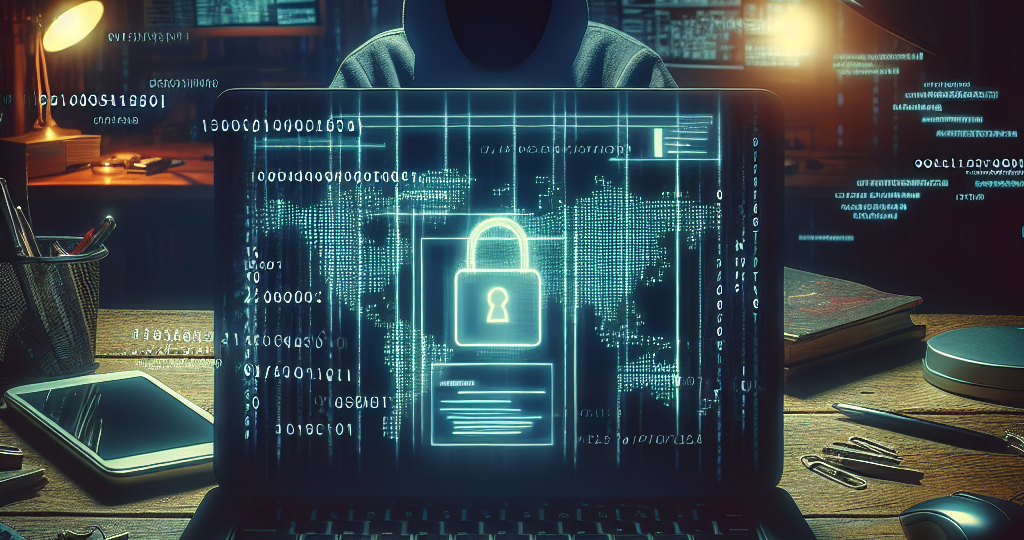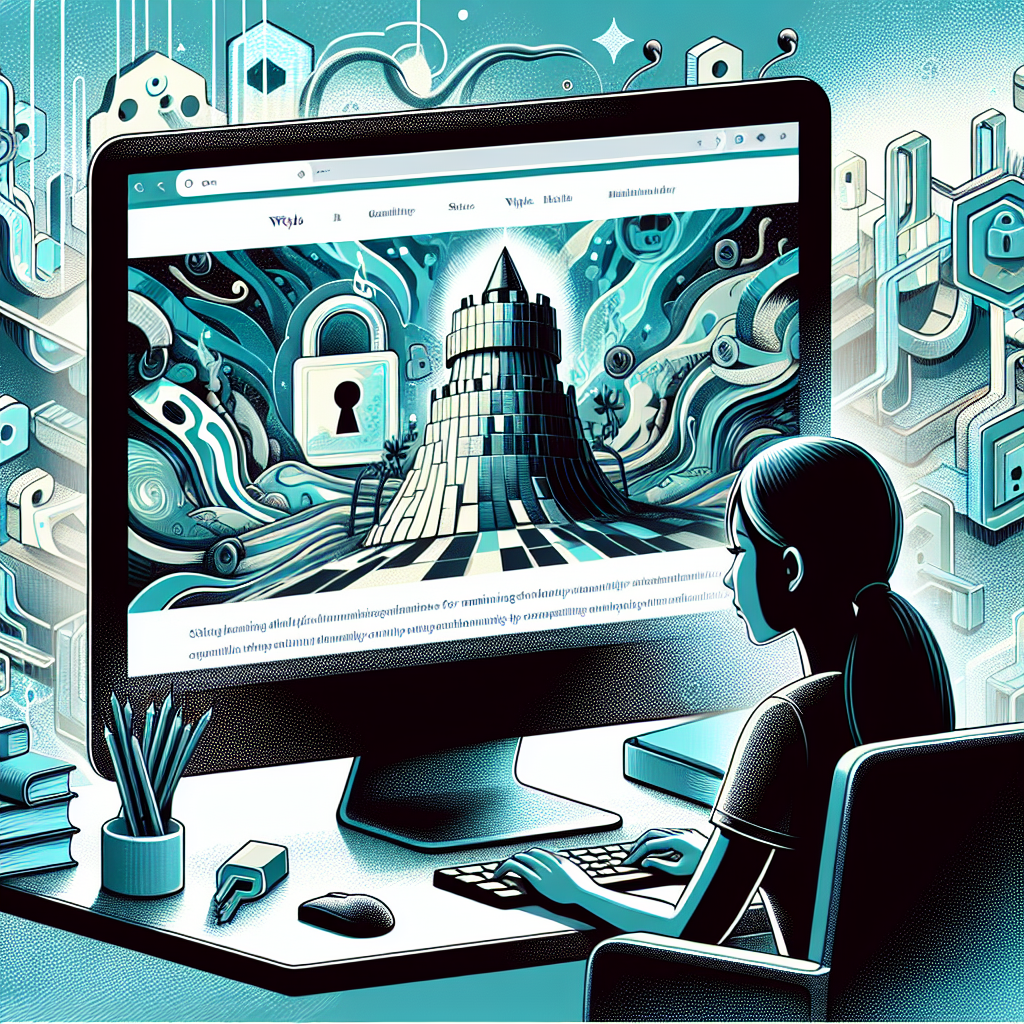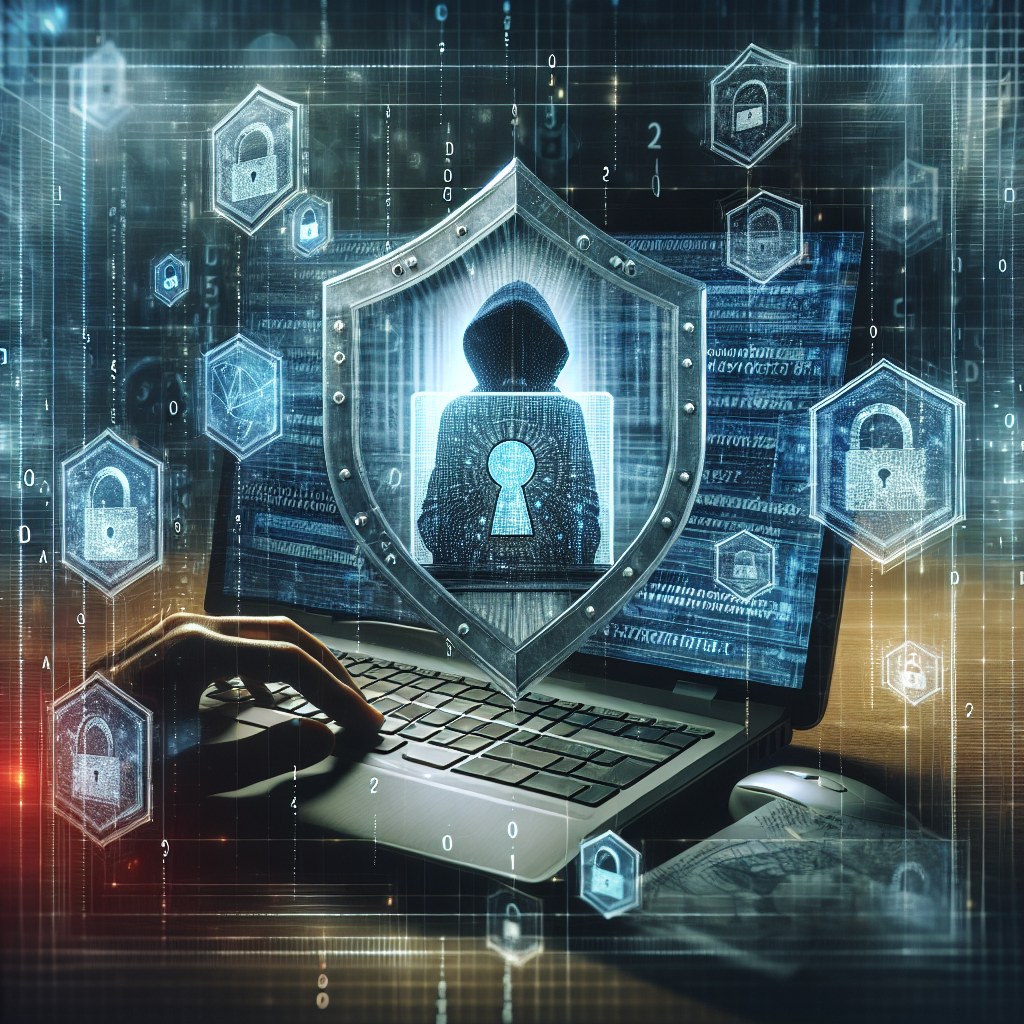
In today’s digital age, protecting your online privacy and maintaining anonymity is more important than ever. Whether you’re browsing the web, using social media, or making online purchases, your personal information is constantly at risk of being exposed. To help keep your identity secure, it’s crucial to follow a few key tips for maintaining online anonymity. From using secure, encrypted connections to being cautious about the information you share, these tips will help you navigate the digital world safely and securely. Stay one step ahead of hackers and prying eyes by implementing these essential strategies for protecting your online identity.
Understanding Online Anonymity
Online anonymity refers to the ability of individuals to browse the internet, communicate, or engage in online activities without revealing their true identity. It involves taking measures to conceal personal information such as name, address, and other identifying details to protect privacy and enhance security while using online platforms.
What is online anonymity?
- Online anonymity involves using tools and techniques to mask one’s digital footprint and browsing habits.
- It allows individuals to maintain privacy and protect themselves from potential threats such as hacking, surveillance, or identity theft.
- By adopting anonymity measures, users can prevent their online activities from being traced back to their real-world identity.
Why is online anonymity important?
- Online anonymity is crucial for safeguarding personal information and data privacy in an era where cyber threats and online surveillance are prevalent.
- It enables individuals to express their opinions freely, access information without fear of censorship, and engage in activities without the risk of being targeted or discriminated against.
- Maintaining online anonymity helps protect against online tracking, targeted advertising, and data mining practices that compromise user privacy and security.
Common misconceptions about online anonymity
- One common misconception is that online anonymity is only necessary for individuals engaged in illegal activities. In reality, it is a fundamental right that everyone should have to protect their privacy and security online.
- Another misconception is that using incognito mode or deleting browsing history is enough to maintain anonymity. While these measures provide some level of privacy, they are not foolproof and may still leave traces of online activities that can be tracked.
- Some people believe that online anonymity is complicated and requires technical expertise. While advanced anonymity techniques exist, simple steps such as using encrypted messaging apps, secure passwords, and virtual private networks (VPNs) can significantly enhance online privacy without requiring specialized knowledge.
Creating Strong Passwords
Importance of Strong Passwords
-
Utilizing a combination of letters, numbers, and special characters: One of the key reasons for emphasizing the use of strong passwords is to enhance the complexity of the password. By incorporating a mix of uppercase and lowercase letters, numbers, and special characters, the password becomes significantly more robust and difficult for potential hackers to crack. This complexity adds layers of security to your online accounts, reducing the risk of unauthorized access.
-
Avoiding common passwords and password patterns: Strong passwords play a crucial role in safeguarding your online anonymity by avoiding common pitfalls such as using easily guessable passwords or predictable patterns. Common passwords like “123456” or “password” are highly vulnerable to brute force attacks, jeopardizing the security of your sensitive information. By steering clear of these predictable choices, you significantly strengthen the protection of your online accounts.
-
Using a password manager for enhanced security: In the digital age where the number of online accounts continues to proliferate, relying on a password manager can be instrumental in maintaining online anonymity. Password managers not only store your passwords securely but also generate complex, unique passwords for each of your accounts. This ensures that even if one of your passwords is compromised, the rest of your accounts remain secure. By leveraging the capabilities of a password manager, you can fortify your online security posture and mitigate the risks associated with weak or reused passwords.
Implementing Two-Factor Authentication

How Two-Factor Authentication Works
Two-factor authentication (2FA) is a security process in which a user provides two different authentication factors to verify themselves. This additional layer of security helps ensure that even if one factor is compromised, the account remains secure.
Adding an extra layer of security to your accounts
When a user attempts to log in, they must provide something they know (like a password) and something they have (like a code sent to their phone). This combination makes it significantly harder for unauthorized users to gain access to the account.
Different types of two-factor authentication methods
There are various methods of implementing 2FA, including SMS codes, email verification, authenticator apps, physical security keys, and biometric verification. Each method offers different levels of security, with some being more secure than others.
Benefits of using two-factor authentication
By using 2FA, users can significantly reduce the risk of unauthorized access to their accounts. It adds an extra barrier that is difficult for hackers to overcome, as they would need both the user’s password and the second factor to gain entry. Additionally, 2FA can provide peace of mind for users knowing that their accounts are better protected against cyber threats.

Safeguarding Personal Information
Being Mindful of What You Share Online
Personal Information
In the digital age, limiting personal information shared online is crucial to maintaining anonymity and protecting oneself from potential privacy breaches. Here are some key points to consider when it comes to being mindful of what you share on the internet:
-
Avoid oversharing sensitive details: Refrain from disclosing information such as your full birthdate, home address, or phone number on public platforms. These pieces of data can be exploited by malicious actors for identity theft or targeted attacks.
-
Consider the risks: Understand the implications of sharing personal information online. Once data is out in the digital realm, it can be challenging to control its spread or prevent unauthorized parties from accessing it. Being cautious about the details you reveal can mitigate the chances of falling victim to cyber threats.
Using Virtual Private Networks (VPNs)
Securing Your Internet Connection
Using Virtual Private Networks (VPNs)
Maintaining online anonymity is crucial in today’s digital age, where privacy breaches and data tracking are prevalent. Securing your internet connection through the use of a Virtual Private Network (VPN) is a fundamental step towards safeguarding your online activities.
- How VPNs encrypt your online data
- VPNs create a secure tunnel between your device and the internet, encrypting all data transmitted through this tunnel. This encryption ensures that your online activities, such as browsing history, downloads, and communication, remain private and protected from prying eyes.
-
By routing your internet traffic through remote servers, VPNs mask your IP address, making it difficult for websites, online services, and even your Internet Service Provider (ISP) to track your online behavior.
-
Choosing a reliable VPN service provider
- When selecting a VPN service provider, it is essential to consider factors such as the provider’s logging policy, encryption protocols offered, server locations, and speed performance.
-
Opt for VPN services that have a strict no-logs policy, meaning they do not store any information about your online activities. Additionally, choose VPNs that support strong encryption standards like AES-256, ensuring robust data protection.
-
Benefits of using a VPN for online anonymity
- Using a VPN not only enhances your online security and privacy but also allows you to bypass geo-restrictions and censorship imposed by governments or content providers.
- VPNs enable you to access region-locked content, such as streaming services or websites, by masking your true location and assigning you a virtual IP address from a different country.

In conclusion, securing your internet connection with a reputable VPN service is a proactive measure towards maintaining online anonymity and safeguarding your digital footprint from unauthorized access and surveillance.
Regularly Updating Software and Apps
Importance of Software Updates
Regularly Updating Software and Apps
- Patching security vulnerabilities in software
Software updates play a critical role in maintaining online anonymity by patching security vulnerabilities that cyber attackers can exploit. Hackers are constantly developing new methods to breach systems, and outdated software is a common entry point for these attacks. By regularly updating software, users can ensure that known vulnerabilities are fixed, reducing the risk of unauthorized access to personal information.
- Ensuring all apps are up to date on all devices
In today’s interconnected digital landscape, individuals often use multiple devices to access online platforms and services. It is essential to ensure that all apps across various devices are kept up to date with the latest software patches. Failing to update apps on a specific device can create a weak link that compromises the overall security of a user’s online activities.
- Automating software updates for convenience and security
Automating software updates is a proactive approach to maintaining online anonymity without requiring constant manual intervention. By setting up automatic updates for software and apps, users can ensure that their devices are regularly equipped with the latest security enhancements. This not only enhances convenience but also strengthens the overall security posture, reducing the chances of falling victim to cyber threats.
Practicing Safe Browsing Habits
Avoiding Suspicious Links and Websites
Practicing Safe Browsing Habits
When it comes to maintaining online anonymity, one crucial aspect is avoiding suspicious links and websites. Cybercriminals often use deceptive tactics to trick users into clicking on malicious links or visiting fake websites to steal personal information or infect devices with malware. To safeguard your online identity, consider the following strategies:
-
Verifying website URLs before entering personal information: Before providing any sensitive data such as login credentials or financial details, always double-check the URL of the website. Look for secure connections indicated by “https://” and ensure the domain matches the official website you intend to visit. Be cautious of URLs with slight misspellings or additional characters, as these could be signs of phishing attempts.
-
Using ad blockers and anti-tracking tools: Advertisements and tracking scripts embedded in websites can compromise your anonymity by collecting data about your online behavior. Utilizing ad blockers and anti-tracking tools can help prevent these elements from tracking your activities and potentially exposing your identity.
-
Clearing browser cookies and history regularly: Cookies are small files stored on your device that track your browsing history and preferences. While they can enhance user experience, they can also be used to track your online activities. Regularly clearing cookies and browsing history can help minimize the traces of your online footprint and enhance your anonymity.
By being vigilant and implementing these practices, you can significantly reduce the risk of falling victim to online threats and maintain a higher level of anonymity while browsing the internet.
FAQs: Tips for Maintaining Online Anonymity
What is online anonymity and why is it important?
Online anonymity refers to the ability to browse the internet without revealing your true identity. It is important for protecting your privacy, preventing tracking by companies, safeguarding against cyber attacks, and avoiding discrimination or online harassment.
How can I maintain online anonymity?
To maintain online anonymity, you can use a virtual private network (VPN) to encrypt your internet connection, use a secure browser like Tor, avoid using your real name or personal information on websites and social media platforms, regularly delete cookies and browsing history, use incognito or private browsing modes, and be cautious about sharing personal information online.
Are there any specific tools or software that can help me maintain online anonymity?
Yes, there are several tools and software available that can help you maintain online anonymity, such as VPNs, Tor browser, encrypted messaging apps like Signal, privacy-focused search engines like DuckDuckGo, browser extensions like Privacy Badger, and password managers like LastPass or Dashlane.
What are some common mistakes to avoid when trying to maintain online anonymity?
Some common mistakes to avoid when trying to maintain online anonymity include using the same username across multiple websites, clicking on suspicious links or downloading unknown files, oversharing personal information on social media, using public Wi-Fi networks without a VPN, and not regularly updating your devices and software for security patches. It is important to stay vigilant and informed about best practices for online privacy.
Become Anonymous: The Ultimate Guide To Privacy, Security, & Anonymity
RELATED POSTS
View all


